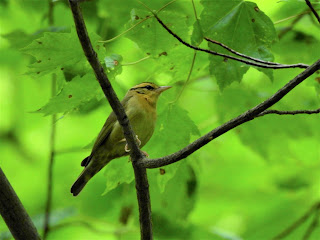Photo: (c) Jamie K. Reaser
My cabin is nestled in a black walnut grove. The grey-black trees
stand tall and firm, like guardians. Their thick branches reach out and around,
embracing. Lichen, moss, and vines adorn them in a manner that you’re sure is
ceremonial. They are trees and not just trees, like in the way that you know
you’ve had dreams that weren’t just dreams. I’m getting to that.
The black walnut is an edge species, meaning that it is neither
of the forest nor the field. Its role is not to fit quite in. It’s also
considered a pioneer species, meaning that it’s one of the first to show up
when a place needs healing. It has been widely regarded for its utility: the
dark wood—easily worked as hardwoods go—sap sugars, brown dye from the nut
hulls, and nut meat and oil, despite the fact that it is one tough nut to
crack. Medicinally, among other things, it has been used to address a wide
range of skin and gut issues.
I think I was in my late twenties when the first part of the
dream came to me. I’m pretty sure that it was after my mother’s death. So, I would
have been twenty-six, at least.
I was listening to a young woman talk about her stepmother.
She was saying that the thing she appreciated most about her was her sense of gratitude.
Her stepmother was a deeply grateful person. It was like gratitude was what her
stepmother lived on—her breath, her sustenance. The young woman went on to say
that when she was a child, she didn’t think much about it; it was just the way
her stepmother was. However, as she grew older and began to frequent the edges
of adult conversations, she started to learn things about her stepmother’s life
before she had become her stepmother. Her stepmother’s life, she learned, had
been difficult. At times, very difficult. This surprised her and impacted her
deeply. She considered herself lucky. She was well loved and supported. To be
truthful, she was quite privileged. If her stepmother could be so grateful
despite an affluence of dark days, then certainly she could be more grateful
for all that she had. She decided to become a grateful person, like her
stepmother.
When I awoke from the dream, I thought it beautiful. It felt
bittersweet—like something that exists at the interface of sadness and joy. It
couldn’t fully occupy either sentiment, but contained both, actively. I was
deeply moved by the thought of what it would be like to impart such a gift to a
child, how it could transform a life, how it could transform some aspect of the
world. I thought: I’m going to be grateful. I’m going adopt gratitude as a way
of living. And, so, I did. Well, I’ve been trying my best, anyway.
The scientific name for the black walnut is Juglans nigra.
The tree is literally of the gods; juglans is derived from jovis glans, meaning
the nut of Jupiter, the king of the gods. In Autumn, when the leaves are
golden and the walnuts begin to crash down on my metal roof, it can feel like
the gods are having something of a temper tantrum. Some people hate the trees
for this and cut them away from their homes. I learned a long time ago neither
to quarrel with nor dismiss the gods. They are usually up to something beyond
mortal understanding. Although there has been many a night when the walnuts
have awakened me from a deep sleep, a crash, bang, causing me to bolt upright
in bed, I adore them still.
I adore them sufficiently to want to grow their company. In
large bushel baskets, I collect all of the nuts that fall in the driveway and
on the decks. I then walk the thresholds, tossing the nuts to their destiny at the
edges of my farm’s woods and meadow, along the stream courses, and at roadside,
wherever they will be able to get sufficient moisture and light. If it wasn’t
for my appreciation of their company, they wouldn’t be in this holler anymore.
Over the decades that preceded my arrival, loggers removed all but my parent
grove.
I think I was in my late forties, maybe fifty, when the
second part of the dream came to me. It was short. This time, I wasn’t just
listening to the story. I was watching the young woman standing behind a
podium, speaking into a microphone, telling the story about her stepmother’s
gratitude. People were listening. People were feeling. It was a funeral. It was
my funeral. I had been the stepmother.
There’s a certain delight that I feel when I look down and,
there before me, I see the first few inches of a young walnut sapling making
its way into the world.
~ Jamie K. Reaser, Author
Published in RidgeLines: A View of Nature and Human Nature
Winner of the Nautilus Book Award gold medal for lyrical prose
Feel free to share








